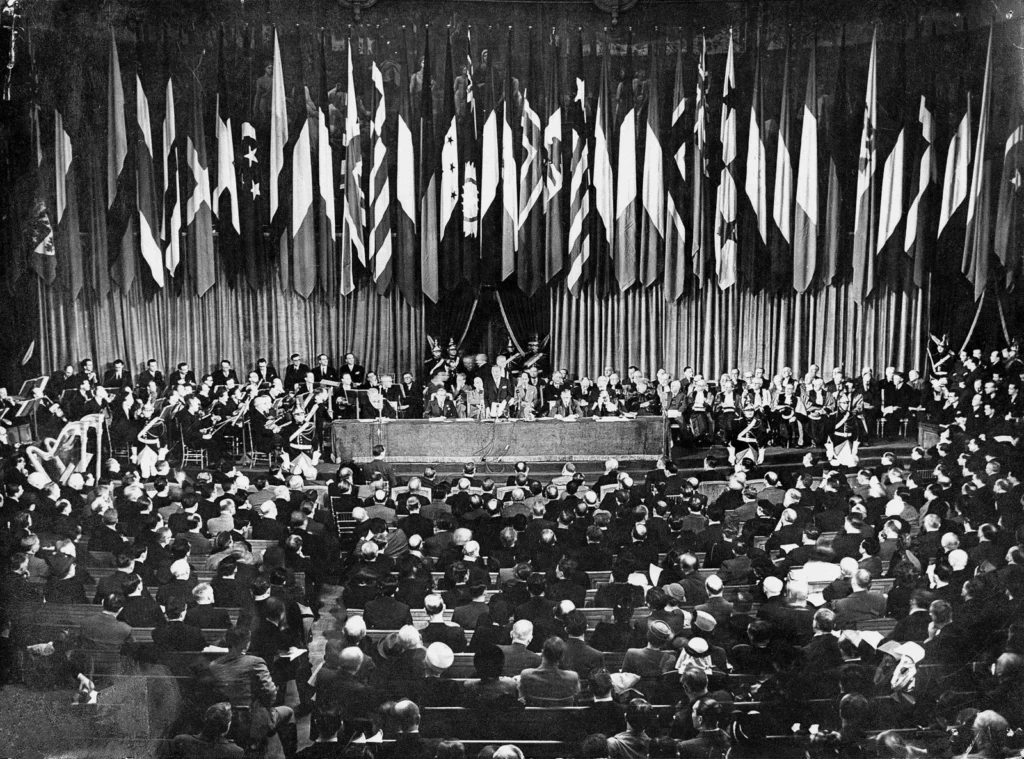On November 16, 1945, an ambitious and transformative initiative emerged on the world stage—the establishment of UNESCO (United Nations Educational, Scientific and Cultural Organization). This momentous event laid the groundwork for an international organization dedicated to promoting peace, education, cultural understanding, and scientific cooperation among nations.

The Event:
The founding of UNESCO was a testament to the shared commitment of nations toward fostering global cooperation in the realms of education, science, culture, and communication. It sought to bridge differences and cultivate mutual understanding through shared knowledge and cultural exchange, believing that this solidarity would contribute to the prevention of conflict and the establishment of lasting peace.
This significant initiative, created in the wake of World War II, stood as a beacon of hope, aiming to build a more harmonious and interconnected world through the pursuit of shared goals in education, culture, and science.
Fascinating Insights for Young Learners:
- Education for All: UNESCO advocates for equal access to education worldwide, ensuring that every child, regardless of background, has the right to learn and develop their potential.
- Preserving World Heritage: UNESCO protects and preserves cultural and natural heritage sites around the world, such as historic landmarks and natural wonders, ensuring they are safeguarded for future generations to enjoy.
- Supporting Global Science: The organization fosters international collaboration in scientific research, innovation, and the sharing of knowledge to address global challenges and support technological advancements.
Interactive Activities for Young Enthusiasts:
- Cultural Exchange Project: Encourage children to explore different cultures and traditions from around the world, perhaps through cooking international dishes, learning phrases in different languages, or creating art inspired by diverse cultures.
- World Heritage Explorer: Organize a game or activity where kids can learn about and ‘visit’ UNESCO World Heritage Sites, discussing their historical and cultural significance.
- Science and Innovation Lab: Engage kids in simple science experiments or STEM projects to instill a sense of curiosity and the importance of scientific discovery.
Conclusion:
The founding of UNESCO on November 16, 1945, remains a pivotal milestone in fostering global collaboration and mutual understanding. The organization’s core principles of education, science, culture, and communication stand as pillars for cultivating peace and promoting a shared global heritage, encouraging us to cherish diversity and unite in our pursuit of a better world.
References:
- UNESCO. (2021). About Us. United Nations Educational, Scientific and Cultural Organization. [Online]
- United Nations. (n.d.). UNESCO. United Nations. [Online]
- Gómez, O. (2008). The Birth of UNESCO. United Nations. [Online]
- UNESCO. (n.d.). History of UNESCO. United Nations Educational, Scientific and Cultural Organization. [Online]
- United Nations. (2021). A Short History of UNESCO. United Nations. [Online]







What do you think?
Show comments / Leave a comment